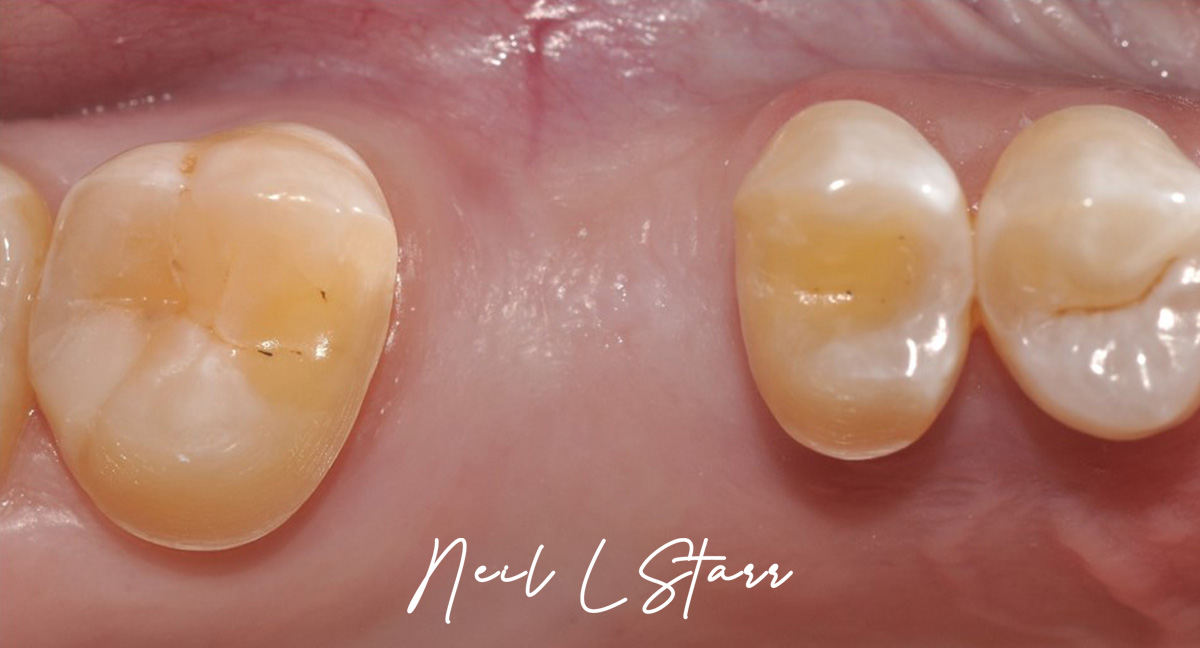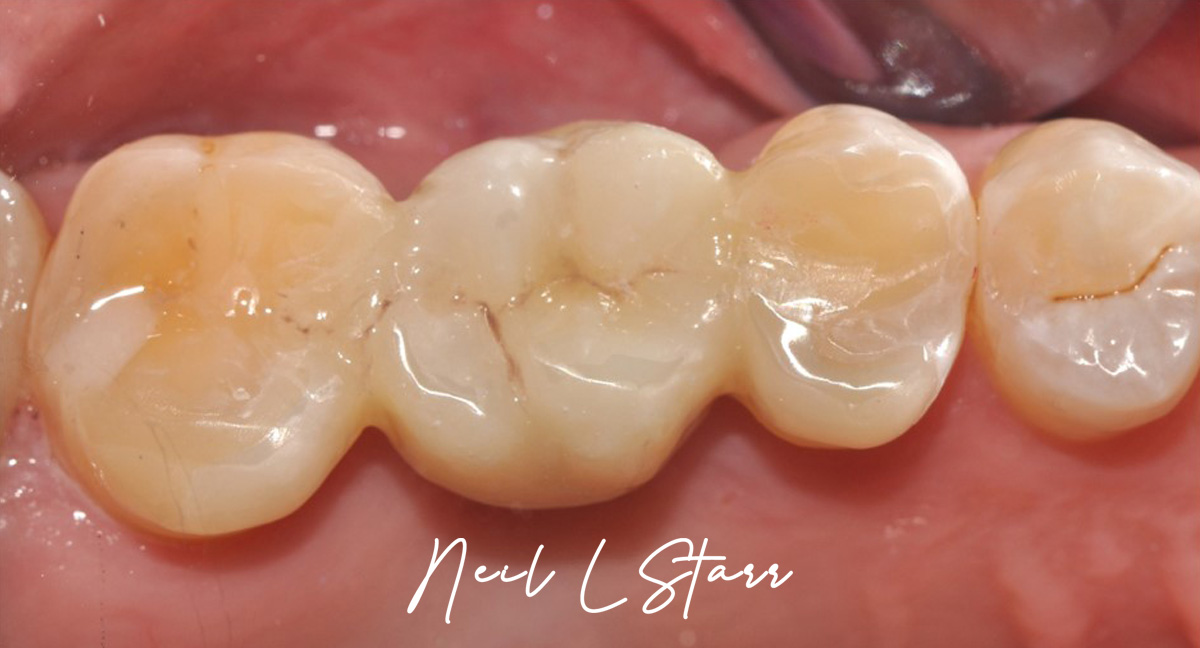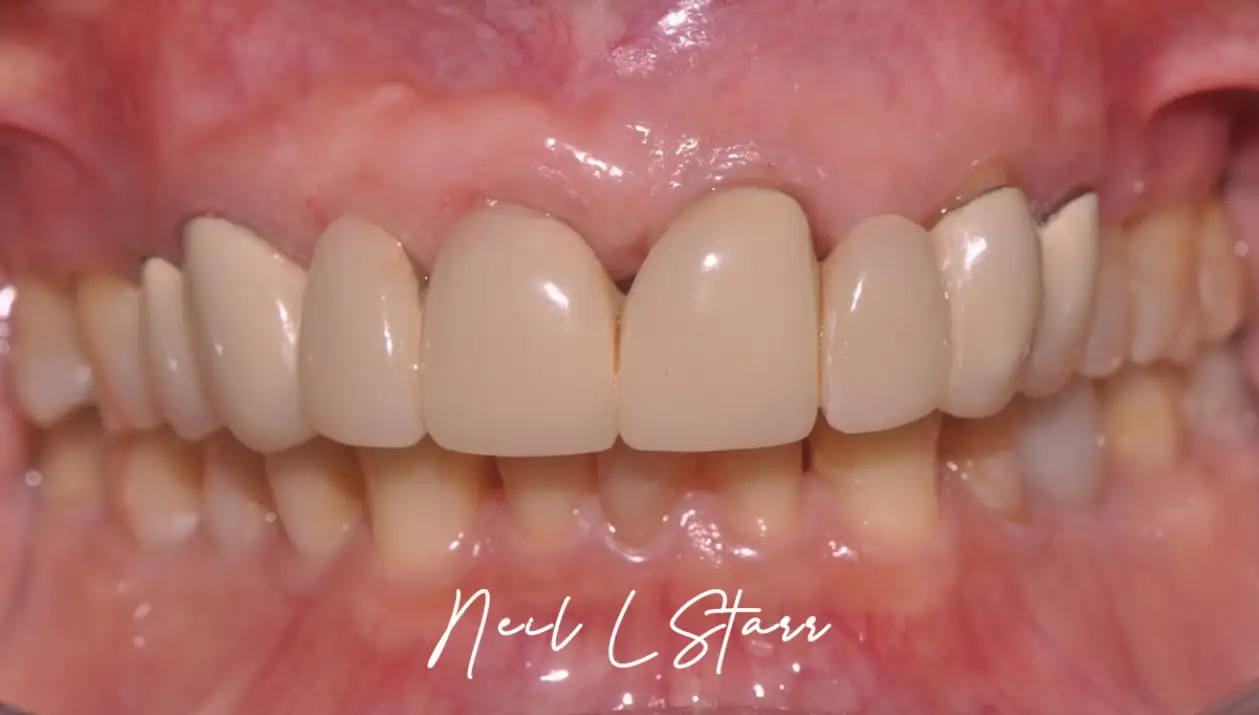DENTAL BRIDGES in Washington D.C.
Dr. Neil L Starr
If you lose a tooth, particularly one toward the back of your mouth, you might not think it is a huge deal. However, the truth is that even one missing tooth can have a significant impact on your life, even if it does not affect the quality of your smile.
Tooth loss makes basic tasks, like eating and speaking more difficult. Food can get lodged in the space, increasing your risk for gum disease, tooth decay or both. Your healthy teeth frequently begin to shift out of their natural alignment, causing other issues such as collapse of your bite, bruxism or TMJ pain.
At Neil L Starr, DDS, PC,
We can replace your missing tooth with an implant or a bridge. Before replacing the missing tooth, we will discuss your available options that may involve the placement of an implant followed up with an implant-supported ceramic crown or a small tooth-supported dental bridge.TRADITIONAL REPLACEMENT WITH DENTAL BRIDGES
A dental bridge is a traditional treatment for the replacement of a missing tooth. The bridge can be used to replace up to three consecutive missing teeth anywhere in your mouth.
There are a few different types of dental bridges, including resin-bonded bridge, fixed-cantilever bridge and fixed tooth-supported bridge.
FIXED DENTAL BRIDGES:
Are the most common – consisting of a replacement tooth with two dental crowns supporting the “dummy” tooth on either side. It is recommended when the teeth on either side of the space/missing tooth already have crowns and so replacing these crowns will likely not involve much additional tooth preparation. These bridges are secured in place using specialized dental cements.
PROS AND CONS OF FIXED-TOOTH SUPPORTED DENTAL BRIDGES:
Pros of Fixed Dental Bridges:
- Restoration of the functions of your missing tooth.
- Your smile is restored.
- The process is straightforward and only requires a small number of appointments.
- You only need a local anesthetic, which is done to prevent discomfort when preparing the abutment teeth.
- They are an affordable tooth replacement option.
- It prevents any collapse of your dentition by nonreplacement.
Cons of Fixed Dental Bridges:
- The need to remove tooth structure from adjacent teeth when the adjacent teeth have minimal restorations present.
- You may need a replacement later down the line, if one of the teeth develops tooth decay that cannot be simply repaired .
RESIN-BONDED DENTAL BRIDGES:
Are bridges that involve minimal removal of tooth structure from adjacent teeth. Dr. Starr will lightly prepare a wall of the enamel and a small area on the biting surface on the enamel of the adjacent teeth (flanking the missing tooth space) and then adhesively bond the missing/dummy tooth onto the adjacent teeth in a permanent manner.


PROS & CONS OF RESIN-BONDED BRIDGES:
PROS OF RESIN-BONDED BRIDGES:
- There is minimal reduction of enamel from the adjacent abutment teeth, thereby preserving as much tooth structure as possible.
CONS OF RESIN-BONDED BRIDGES:
- The bridge may debond on rare occasion. If that should happen, the resin-bonded bridge can be recleaned and refreshed for adhesive recementation.
- The resin-bonded bridge may not be successful replacing more than one missing tooth longterm.
- On occasion one of the bonded bridge retainers of one of the abutment teeth may debond and present a challenge to address . This may require the design and fabrication of a new bridge, if tooth decay has encroached upon the tooth.
FIXED CANTILEVER DENTAL BRIDGES:
Are fabricated to replace an upper lateral incisor tooth or lower lateral incisor front tooth that is missing. Due to the fact that the lateral incisor is small in height and width, the connecting joint from this “dummy” tooth to the adjacent supporting natural tooth on one side is strong enough. So, it doesn’t require support on both sides like the more traditional fixed dental bridge described above.
PROS & CONS OF FIXED CANILEVER DENTAL BRIDGES:
PROS OF FIXED CANTILEVER DENTAL BRIDGES:
- The bridge is very conservative in its construction and involves only the preparation of one adjacent tooth as compared with two adjacent teeth for the fixed dental bridge.
- The bridge may be combined with a more minimally involved adhesive dental treatment, whereby the adjacent supporting tooth may only require the removal of a small amount of enamel for its fabrication.
CONS OF FIXED CANTILEVER DENTAL BRIDGES:
- Patients with very deep bites are not good candidates for this type of bridge, due to the compressive and tensile forces exerted to the cantilevered crowned tooth.
DENTAL IMPLANTS:
Please refer to the section on DENTAL IMPLANTS for information on how dental implants may be of value for you. Dr. Starr and his staff have been fabricating dental bridges and dental implant restorations of all classifications and types for many years. If you are in need of replacing a missing tooth, it is important to have a discussion with him about which bridge design will be best for you or if replacement with an implant and crown is preferred. You can be assured that he will address your treatment options and concerns with complete thoroughness. Schedule your appointment today.If your mouth has been affected/plagued with oral health issues DON’T GIVE UP! A full mouth reconstruction can restore your dental condition to a healthy, functional and aesthetic state.


